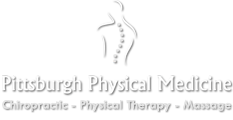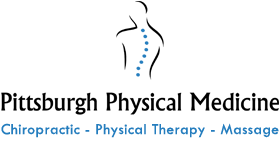Scoliosis Specialist in Pittsburgh PA

If you notice that your shoulders don’t look even or that one hip seems to sit higher than another, you may have scoliosis. Dr. Justin Foltz can diagnose scoliosis and reduce the pain and discomfort associated with the condition and may slow, or even stop, its progression at Pittsburgh Physical Medicine. Call Dr. Foltz’s office today or schedule your appointment online if you live in Pittsburg and want to learn more about what chiropractic and rehabilitation can do for your scoliosis in Pittsburgh PA.
Scoliosis Q & A
What is scoliosis?
Scoliosis results when you develop a sideways curve in your spine. While your spine naturally curves forward and backward, creating an “S” bend, it’s unnatural for it to curve side to side, creating a “C” curve. Scoliosis often develops right before puberty, but can also be seen in adults and children with cerebral palsy and muscular dystrophy, as well as other conditions.
Although most cases of scoliosis are mild, spinal deformities can develop when the condition goes untreated. Once the spinal curvature becomes large enough, the condition can become debilitating.
Common signs and symptoms of scoliosis include:
- Uneven shoulders or waist
- One hip sitting higher than the other
- A more prominent shoulder blade
- Difficulty breathing due to the curve creating pressure on the lung
What causes scoliosis?
In most cases, the underlying cause of scoliosis is unclear. The condition may have a genetic factor, as it can sometimes run in families, although most children who develop it don’t have family members with scoliosis.
In other cases, neuromuscular conditions like cerebral palsy and muscular dystrophy can lead to the disease, as can injuries to the spine. Scoliosis can also result from congenital disabilities that impact how the spine develops.
Degenerative scoliosis can occur in adults, especially in the lumbar, or lower, back. It’s often associated with degenerative conditions such as osteoarthritis and degenerative disc disease, as well as with the wear and tear of the spine that’s common with aging.
How does a Pittsburgh PA chiropractor help scoliosis?
While most cases of scoliosis don’t require correction, a chiropractor can help reduce any pain and discomfort you may experience. In some circumstances, Dr. Foltz may even slow the condition’s progression.
Depending on a variety of factors, including where your spinal curvature is on the spine, its severity, and the symptoms you experience, Dr. Foltz may recommend a range of safe, natural, and effective methods, including:
- Gentle spinal manipulation
- Therapeutic exercises
- Stretching or yoga
- Trigger point therapy
- Lifestyle modifications
- Ergonomic changes to workspace
If you live in or near Pittsburgh PA and think you may have scoliosis, it’s time to call Pittsburgh Physical Medicine. You can even book your initial consultation online today.
Request An Appointment Today!
OFFICE HOURS
Monday
8:00am - 6:00pm
Tuesday
2:00pm - 6:00pm
Wednesday
8:00am - 6:00pm
Thursday
8:00am - 6:00pm
Friday
8:00am - 12:00pm
Saturday & Sunday
Closed
Pittsburgh Physical Medicine
5916 Penn Ave
Pittsburgh, PA 15206


